Article by David Rosales.
I. A Romantic Art
In the past, we have likened the spirit of metal that culminates in death and black metal to that of the literary, romantic movement in Europe. Romanticism was meant to embody ideals of naturalism and individualism in a return to primeval spirituality connecting us with our origins, our surroundings, and a more conscious future. The romantic character of the 19th century stands in glaring opposition to the heavy industrialist upsurge and man-centered utilitarianism of that time. Epitomized metal contrasts with this idea in one important aspect: while artists two centuries ago strived to bring attention to the importance of human subjectivity, underground metal stressed irrelevance of the human vantage point.
In describing metal as a neo-romantic artform we may well be undermining the aspects that define it in its historical and psychological contexts. Historical as each movement is encased in a flow of events linked by causality and psychological, on the other hand because of the relative independence and unpredictability with which leading individuals affront these inevitable developments. Together, these two factors account for freedom of choice within predestination. Even though romanticism and metal were both reactions to the same decadence at different points in time, the latter rejects the former’s inclination towards universal human rights and other products of higher civilization in exchange for a nihilistic realism arising from the laws of nature. Underground metal is a detached representation of a Dark Age; one where power and violence are the rule in which all forms of humanism are hopelessly deluded or simply hypocritical.
The uncontrolled and contrarian character of metal stands at odds with the more self-aware and progressive bent of romanticism. Metal, at least in its purest incarnations, can never be assimilated – something that cannot be said of the older art movement. Pathetic attempts at dragging metal under the mainstream umbrella that abides by status quo ideals often fail catastrophically. When forcefully drawn out before dawn’s break it will inevitably miserably perish upon contact with the sun’s rays like a creature of catacombs and dark night-forests.
Attempting to define metal is as elusive as trying to pinpoint ‘magic’. Outsiders cannot even begin to recognize its boundaries. The mystical, ungraspable, and intuitive nature it possesses attests to this and sets it apart from romanticism in that not even those belonging to it are able to crystallize a proper description. The very substance of the genre is felt everywhere but the innermost sanctum always dissipates under the gaze of the mind’s eye.
II. Romantic Anti-Modernism
Even though it cannot be said that the one defines or encompasses the other, the connection between romanticism and metal nevertheless exists. Aside from the concrete musical link between them which helps us describe metal as a minimalist and electronic romantic art, the abstract connection is more tenuous and related to cyclic recurrence1. Metal is not a revival of romanticism nor its evolution, but perhaps something more akin to its rebellious disciple: a romantic anti-modernism.
The foundation of this anti-modernism is a Nietzschean nihilism standing in stark contrast with hypocritical modernist dogma; it spits in the face of the semantic stupidity of post-modernism. This is a sensible and ever-searching nihilism2 that does not attach itself to a particular point of view but parts from a point of disbelief in any authority. It is a scientific and mystic nihilism for those who can understand this juxtaposition of terms. It does not specialize in what is known as critical thinking but in the empirical openness to possibilities taken with a grain of salt. The first dismisses anything that does not conform to its rigid schemata; the second one allows relativism as a tool with the intention of having subjective views float around while transcending all of them and moving towards unattainable objectivity.
Such transcendentalism connects metal with Plato and Theodoric the Great rather than with Aristotle and Marcus Aurelius. Metal looks beyond modern illusions of so-called freedom and the pleasure-based seeking of happiness. It recognizes that without struggle there can be no treasure and that today’s perennial slack will only lead to complacent self-annihilation. This is why, instead of representing the blossoming of nature in man through the sentimentalisms of romanticism in its attitude above time, to use the words of a wise woman, metal stands stoutly as a form of art against time.
III. Essential Reading for the Metal Nihilist
As an attempt to communicate our understanding of the essence and spirit of underground metal, below are some books through which to start the abstract journey through metal and the metaphysics that moves it.
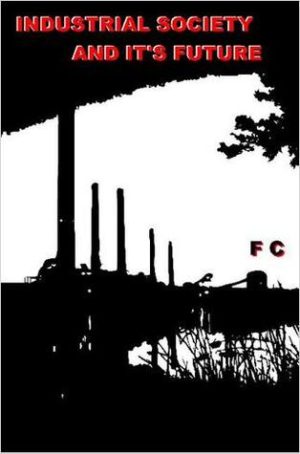
Theodore John Kaczynski – Industrial Society and Its Future
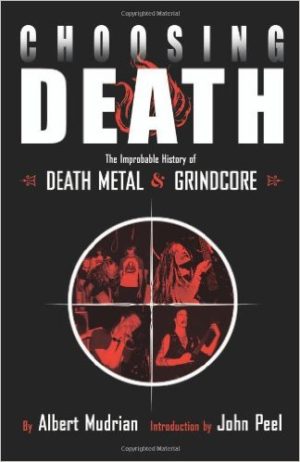
Albert Mudrian – Choosing Death: The Improbable History of Death Metal and Grindcore
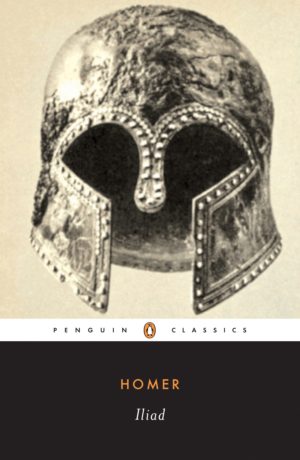
Homer – The Illiad
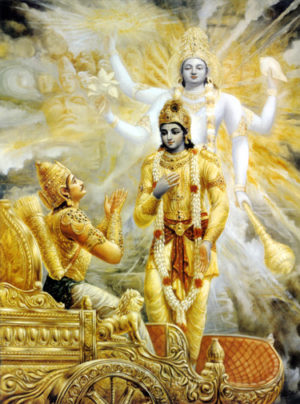
The Bhagavad Gita

J.R.R. Tolkein – The Children of Húrin
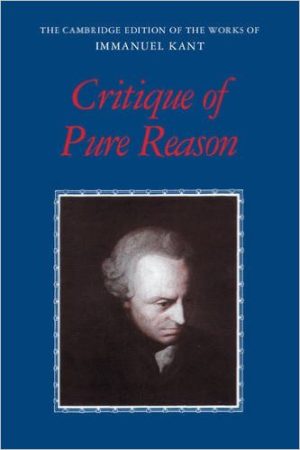
Immanuel Kant – Critique of Pure Reason
IV. Some Music Recommendations for the Metal Nihilist
We have traditionally presented a certain pantheon of underground death and black metal to which most readers can be redirected at any moment. A different set is presented below that is nonetheless consistent with the writer’s interpretation of Death Metal Underground’s vision.
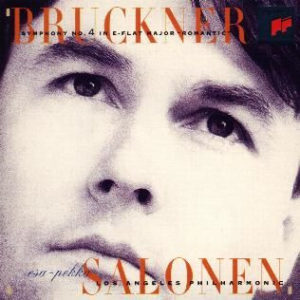
Esa-Pekka Salonen – Bruckner: Symphony No. 4 in E-Flat Major “Romantic“
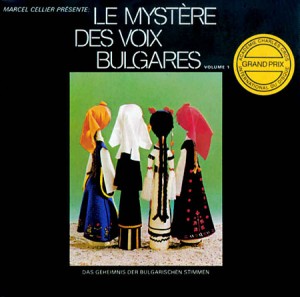
Bulgarian State Radio & Television Female Vocal Choir – Le Mystère des Voix Bulgares
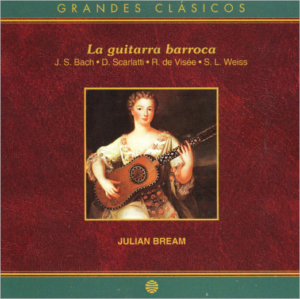
Julian Bream – La Guitarra Barroca
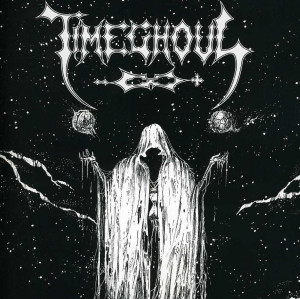
Timeghoul – 1992-1994 Discography
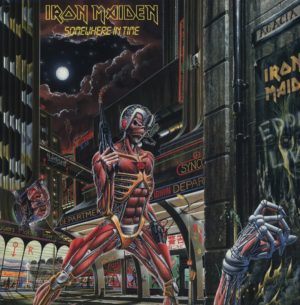
Iron Maiden – Somewhere in Time
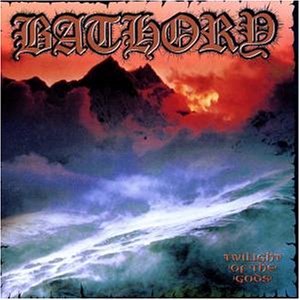
Bathory – Twilight of the Gods
V. Films
Not being a connoisseur of cinema in general, the following is but a friendly gesture. This is a loose collection for the transmission of a basic underground metal pathos.

Tous les Matins du Monde

The Witch: A New-England Folktale

Martyrs
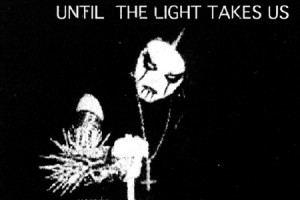
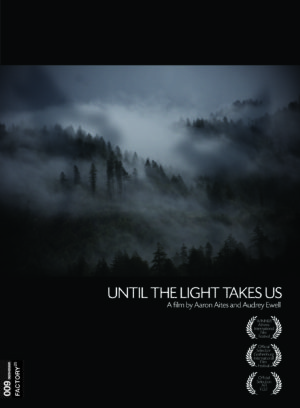
Until the Light Takes Us
A 2008 documentary film by Aaron Aites
and Audrey Ewellabout the early 90s
black metal scene in Norway.
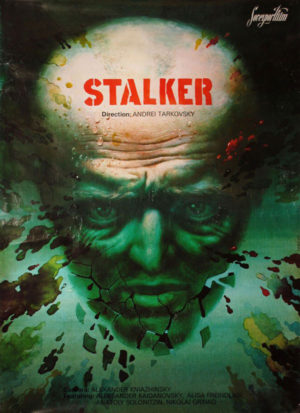
Andrei Tarkovsky – Stalker
Notes
1This is not the re-happening of the exact same universe that Nietzsche is supposed to have been talking about, but a transcendental recurrence of sorts. What I am trying to express here is the cyclic reappearance of abstract and collective concepts among humans, because they are also part of this universe and as such are subject to such underlying pendulum swings in the forces that move it. Perhaps a better descriptor could have been abstract collective concept reincarnation, but that seemed to convoluted, and cyclic recurrence captures the wider phenomenon, irrespective of what definition academia wants to adhere to.
2This somewhat liberal use of the term nihilism deserves to be explained a little further in order to avoid confusion. By this it is not meant that metal’s outlook consists of nihilism in the ultra-pessimistic sense, in the sense of total defeat, which seems to be the expectancy of most people from nihilism. The idea here is that as an art movement born in the post-modern era, in a civilization that has already been ravaged by nihilism, stripped from relevant cults, metal begins from a posture of extreme skepticism that is extended to everything and everyone. This skepticism is nihilistic because no intrinsic value is placed on anything, yet it is scientific because it is curious and will experiment. Metal’s development dances between nihilism and individualistic transcendentalism.
Tags: aaron aites, albert mudrian, Andrei Tarkovsky, anti-modernism, anton bruckner, Bathory, Bhagavad Gita, condor, friedrich nietzsche, Godless Arrogance, Homer, iron maiden, j.r.r. tolkien, julian bream, Kant, modern metal, modernism, Nadia, Nihilism, Philosophy, plato, Romanticism, sammath, somewhere in time, Stalker, Ted Kaczynski, The Illiad, timeghoul, tolkein, twilight of the gods, until the light takes us

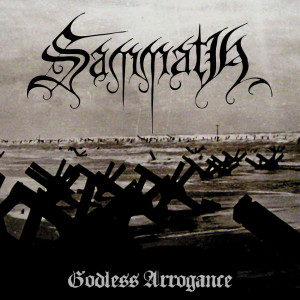
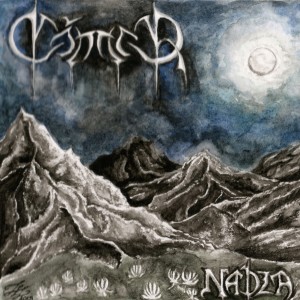


I hate modern society, but I don’t know how to fight against it.
I yearn for the birth of a new culture and nation, one not shaped by rampant industrialist and low minded hedonistic values.
However, this is not the dark ages, so rallying a horde to conquer a patch of land is not possible.
How can we create a superior culture? How can we fight the sickness of modern society?
The options that come to mind, such as eco terrorism, are not attractive. They won’t really accomplish anything.
Does any one have concrete ideas? All I can think of is raising children to be superior people, and to have them in turn do the same.
I don’t know if this will work, though… Because too many people simply want to sit on a couch, eat pre prepared food, and watch TV. It’s probably in their genes, not just their memes.
No ideas?
I am sick of only sitting around and appreciating art. Something has to be done.
Where do you live?
Sweden
Not an answer to your question but do you know of this radio (from Sweden incedentally)? http://www.redicecreations.com/ / https://www.youtube.com/user/RedIceRadio
I haven’t heard of it. I checked out a Youtube video of theirs, and there are holocaust deniers in the comments (I’m not going to bother defending this position. The evidence for the murder of jews at the hands of nazi Germans is overwhelming). That’s usually a bad sign, but these days, most people have to be crazy to accept the politically incorrect realities, like how almost only irrational racists accept that African Americans commit disproportionate amounts of crime.
Email editor, you should write something in relation to music and how it leads your mind there. In any case, write and let’s discuss.
An autobiography about how music, mostly metal, improved me and opened my mind is not of interest or relevance here. It’s too much about me and too little about the music.
I would do it if I could say something interesting about the music, but in that regard, I am outclassed. Some of it, I don’t even really understand. I’m just drawn to it, but I do not intellectually know why.
Yes, Death metal did away with the histrionics and sentimentality of personality-obsessed rock music and showed us an anti-personal, anti-anthropocentric view of the world. a world in which humans are powerless and insignificant in the flux of an indifferent universe. Death metal represented deconstruction, purification, the burning of anything and everything you thought you knew in the fires of nihilism. But where do you go from there?
Black metal reintroduced the individual to metal, but tempered with a sense of humility before the grandeur of the natural order. Black metal was the reconstruction, the formation of new values and goals in a creative endeavor with the individual and his aspirations at the center. It found beauty in the will of individuals struggling against a cold and uncaring world and perhaps even exalted that struggle as the essence of life itself.
Critique of Pure Reason but not The Republic or Also Spoke Zarathustra ?
Basically, COPR is mega concentrated and to the point, although voluminous, and leaves no room for interpretations and deflection.
I consider The Republic to be a masterpiece, but hold it in the esoteric Pantheon rather than philosophical. Academic philosophers don’t deserve him ;)
TSZ is, then, also too cryptic at first. I wanted one that delivered the message like a hammer blow.
COPR is dense and definitely no beginner’s work, but it’s so bear-knuckle, so ruthless but clear minded, that it’s perfect for a constructive approach arising from nihilism that isn’t dominated by empiricism but rather makes use of it.
The Republic is easy to skewer.
Politics:
Plato contradicted himself and created a utopian project wherein each human being is only allowed to be 1/3rd of a person. The chariot metaphor described a whole human being while in Meno he admonishes the notion that anyone can be taught the most cutting edge knowledge if taught through proper logical reasoning. The Republic dispensed with these notions.
Platonic Forms:
He attempts to advance the notion that abstractions aren’t merely mental categories drawn by humans for the purpose of understanding the world, but literal Truths. It’s an obvious conclusion to reach if you start from there belief that reality is fundamentally rational. If it is rational then reality must correspondent with our ideas about it. The problem of course is that it doesn’t; reality is not rational and correspondends closer to will than idea.
Plato is not for rigid minds looking for formulaic dead letters.
Wow, you REALLY like “Somewhere in Time,” from what I have read of your stuff. I wore out my cassette of “Somewhere in Time” long ago, so it is hard to argue the albums excellence.
I may not be the best person to comment, but, I have always considered Metal (TRUE METAL!!!), a kind of outsider art. Maybe not “Outsider Art” in that of a strange-southern-retard writing a “novel” about being raped as a kid, but at least in the sense that the best Metal artists unconsciously stumbled upon something they didn’t truly understand. Stands to reason, as far as I can see, that bands like Sepultura, Slayer, Mayhem, Bathory, Varg, Celtic Frost and the likes of such legendary acts may have been GIVEN such “anti-modern” tendencies, as opposed to educated cultivation of what they produced. Look at the products of so many great bands once a certain level of fame, or infamy, sets in.
My question is, as a clearly educated person, what do you make of generally uneducated persons making music both amazing and anti-social in the same breath? It is hard to breach the chasm of discipline, composition and competence with the recklessness, chaos, and “fuck you” attitude that many of the genres fore-bearers espoused.
I claim no special insight or bias, as a drop-out, semi-autodidact, myself. It just seems that so much pontificating and gesturing about a genre of music might be as much, or more, of a construction of the educated listener’s own whims as opposed to the artist’s original intentions.
Great and well written article, by the way. So much to think about.
Some of the best metal ever was created by non-intellectuals not educated in music theory.
Let’s face it, if Prozak’s eugenics master plan was ever realized, there wouldn’t be any metal musicians left, and that includes those in the bands venerated on this site.
Guys like Tomas Lindberg seem intelligent and reasonable, even if the new dumb music he’s involved in suggests otherwise. I also think Fenriz could escape the gene police if you never put a camera in front of him. Antti Boman could also do programming and has army strength – a good combo. In the end, the music would probably be considered “dilettante art” and be discarded by our wiser Michael Fassbender look alike overlords.
Great article.
Excellent film recommendations. I would also offer Valhalla Rising (2009) and The Grey (2011) as contemporary films along the same lines.
Aguirre: The Wrath of God and Black Death would’ve been great too.
Robocop.
> “Wow, you REALLY like “Somewhere in Time,” from what I have read of your stuff. ”
Not particularly, but I think it would be an excellent addition with something different to say.
I’m more for earlier Iron Maiden, and I actually prefer Angel Witch and Witchfinder General (especially live).
>”My question is, as a clearly educated person, what do you make of generally uneducated persons making music both amazing and anti-social in the same breath?”
I have never heard ‘generally uneducated’ people making amazing music. Ever.
Though other people may find passingly exciting music “amazing”.
I’ve heard of largely self-taught and extremely well-read people making amazing music, though. Varg Vikernes, for instance.
In general, however, talent for music and a focused abstract purpose is the recipe, whether uneducated or not. I think the key is innate intelligence and creative obsession.
I like the overall thesis (but I believe the author as left out how much of a debt to modernism extreme metal has. It’s not bloody neo-folk or neo-romantic classical music, after all). But some of it reads like a post-modern philosophy paper: a lot of descriptive words which struggle to express anything concrete.
“Historical as each movement is encased in a flow of events linked by causality and psychological, on the other hand because of the relative independence and unpredictability with which leading individuals affront these inevitable developments.”
What does this mean?
“Together, these two factors account for freedom of choice within predestination.”
What does this mean?
“The mystical, ungraspable, and intuitive nature it possesses attests to this and sets it apart from romanticism in that not even those belonging to it are able to crystallize a proper description. The very substance of the genre is felt everywhere but the innermost sanctum always dissipates under the gaze of the mind’s eye.”
What does this mean?
“Aside from the concrete musical link between them which helps us describe metal as a minimalist and electronic romantic art, the abstract connection is more tenuous and related to cyclic recurrence.”
What the fuck does this mean? So we see patterns in cultural periods. Why the ontological label ‘cyclic recurrence’?
“It is a scientific and mystic nihilism for those who can understand this juxtaposition of terms. It does not specialize in what is known as critical thinking but in the empirical openness to possibilities taken with a grain of salt. The first dismisses anything that does not conform to its rigid schemata; the second one allows relativism as a tool with the intention of having subjective views float around while transcending all of them and moving towards unattainable objectivity.”
What does THIS mean?
Comical…
You “do not” understand each of these for different reasons. None of which is because this reads like a “post modernist” paper, whatever you mean by that.
A few need clarifications, but nothing that an esoteric-minded individual possessing independent thinking cannot figure out himself.
You want to read this as an attempt to write academic bullshit. IT ISN’T. Stop reading it as such.
Take each of your well-selected questions and think about them. See what you learn from trying to find what it means. That is exactly the purpose here.
“Take each of your well-selected questions and think about them. See what YOU [my emphasis] learn from trying to find what it means. That is exactly the purpose here.”
Hehe. That sounds EXACTLY like a post-modern visual artist talking about her work to an inquirer ;)
Except I do have concrete concrete concepts in mind. Post modernists just spew empty words with open or variable meanings. That’s not what I’m doing.
I hadn’t had coffee yet. I was being Cheeky. Of course.
I think this article is more accurate of Black Metal, not Death Metal and especially not Grindcore. Death Metal, to me, is the highest form of Metal. It’s certainly Nihilistic, in a cosmic sense, but it’s not clearly ‘Romantic’.
Also: Why do you lampoon ‘critical thinking’ in one breathe and then recommend the Critique of Pure Reason in another? Metaphysics for Kant concerns a priori knowledge, or knowledge whose justification does not depend on experience. He associates a priori knowledge with reason (or ‘critical thinking’). The project of the Critique is to examine whether, how, and to what extent ‘critical thinking’ is capable of a priori knowledge.
I’d like to hear someone try to explain why Effigy of the Forgotten is romantic art.
Of course it isn’t.
If the editors accept it, I’m gathering some thoughts to write something about modernism and metal; the relationship between modernism and primitivism, etc.
We’ll gladly take them at editor@deathmetal.org
If the members of Suffocation were born 5 years later, they would be Cypress Hill. That they made something good was a fluke but their whole career was dumb choices weighed against a small set of ideas.
Early Suffocation was pretty good, but horribly overpraised. Their New York counterparts Immolation and Incantation were superior. Shit, I even prefer bands like rottrevore and baphomet over suffocation. You hit the nail on the head with the cypress hill comment haha. So fucking true.
Pierced From Within is clearly the best piece of music ever composed. I listened to it at least twice daily for over a year, and at least once daily for the subsequent year. No matter how many listens, I still got the same goosebumps, awe, and inspiration. It perfectly captures all the ideals that must be embraced as we continue to recover from the extermination of the great men during WWI & WWII. I can’t imagine anyone that says this album is overrated being an actual metal listener.
> “. The project of the Critique is to examine whether, how, and to what extent ‘critical thinking’ is capable of a priori knowledge.”
Precisely.
Limits of.
The list of books is not to be taken as if each of them embodies metal, but that as a collection they point to something and are clues.
This is not a school list, these are tools to your own edification. Not bibles, but indicators.
Although, perhaps I phrased it too antagonistically, but I was attacking what is so-called critical thinking, perhaps I should have used a better descriptor, something between materialist skepticism and empiricism? not sure…
If by ‘materialist skepticism’ you mean empirical science, then if you are skeptical of it and not some other source of ideas, you must ask yourself why ‘materialist skepticism’ brought you the computer your wrote your article on and not some other source of ideas you seem to be gesturing towards but cannot say what the methodology is.
Computational theory is one of the most beautiful, powerful, and generative ideas lying beneath the surface of human appearances. “Esoteric”, if you will.
I know it appears that way. Actually, I would hold nihilism, empiricism and platonic metaphysics in equal regard as if they were the three branches of government.
I wouldn’t let empiricism get the upper hand, or scientific skepticism for its own sake. That’s what nihilism is there for, to remind us they are all made up in our heads.
Empiricism, as a strict methodology, is the best embodiment of Nihilism, IMO.
Platonic Metaphysics, on the other hand, represents a lack of understanding of Evolution by Natural Selection and evolutionary psychology.
Ok, so we don’t perceive, in the actual world, perfect triangles. Yet, we judge triangles against the ‘form’ of a triangle. OK: rather than positing a soul which was in contact with the forms in some other life, instead we need to posit basic mental concepts.
Do you think children get their ‘folk-physics’ from the Platonic realm? Of course they don’t. Kids have innate, hard-wired expectations about middle sized objects because of genetic variation in a population of ancestors and natural selection acting upon this variation. Same for other patterns/forms we perceive in nature.
This isn’t to say nature doesn’t have a structure. It’s to say we are ‘in tune’ with this structure due to natural selection – a better substitute for Plato’s ‘heaven’ IMO.
Some naturalistic ‘essentialism’, perhaps.
I agree,
But Plato’s words are not to be taken literally.
They seem to me like beginnings, clues, and mental experiments.
Think about Jung’s empirical work concerning dream symbols and therapy subjects.
“I agree,
But Plato’s words are not to be taken literally.
They seem to me like beginnings, clues, and mental experiments.”
I think that the cave story is a great metaphor for how we can never truly know the world, since we rely on our brain’s constructions taken from limited stimulus to sense it. We can never purely see a thing itself, only its shadow (what our senses generate when exposed to it).
But if you take him literally, he makes some dubious claims which lack evidence.
Like some have suggested, if you take Plato literally, he isn’t compatible with a nihilistic nor empiricist vision of the world. Obviously, you can read it metaphorically and find some insights. But Plato wasn’t talking metaphorically regarding Ideas being real forms existing outside our brains. And I think we have enough evidence now to disregard that “theory”, at least in a literal sense.
Or that Triangles are artifacts of the primate central nervous system drawing a road map out of limited data acquired through a small number of sensory organs. The relevant insight to be gained from Platonic forms is that the map is never the territory. Though Plato himself seemed to have lost site of his own insights there.
Computer 3d modelling uses triangles as the basic building block :p
> “I think this article is more accurate of Black Metal, not Death Metal and especially not Grindcore. Death Metal, to me, is the highest form of Metal. It’s certainly Nihilistic, in a cosmic sense, but it’s not clearly ‘Romantic’.”
Death and Black metal are the two phases to what I am saying: from nihilism to transcendentalism to mysticism.
Grindcore is not metal.
You may find these articles by Brett Stevens on Romanticism and metal interesting: https://www.deathmetal.org/article/metal-as-romanticism/
https://www.deathmetal.org/article/heavy-metal-as-an-extension-of-the-romantic-movement/
I’ve read them years ago. I know romanticism=metal is Brett Stevens position, and a long time ANUS/DLA/DM.org position. I just don’t think it’s the entire truth (truth in a non mysterious sense of representing physical reality objectively).
(I don’t mean to come across too combative: David does qualify his association between metal and romanticism). I think think it doesn’t give enough attention to metal and modernism, in the cultural sense of that term (not the political).
Metal is, undoubtedly a product of modernism, but that is why I perceive it is contrarian. It is born out of it and against it.
It depends what you mean mean by ‘modernism’. If you mean measured ‘bourgeoisie’ modernity (A mix of liberalism, Christianity, individualism, materialistic optimism, stupid politeness), then fine. But if you mean modern in the sense of technology, science, speed, transcendence (the radical going beyond of prior forms), then I think the story is much more complex, and more interesting. Modernism in this later sense, I.e. the kind of tradition that Evola came out of (and painted in his whole life) – and that radical figures like Pound and Lewis came out of – has links with the primitive and the demonic shared with paganism, for example.
I.e. Modernism was itself initially a movement pitted against Bourgeoisie conservatism. Some modernists were critical of Bourgeoisie conservatism from the left, and some modernists were critical of Bourgeoisie conservatism from the right. But those modernists who were critical of Bourgeoisie conservatism from the right were nevertheless MODERNISTS.
There were even people who tried to use existentialism in a primordial and right wing way (arguably, Heidegger). Death as a form of ‘essentialism’.
“Only death is real”.
Bill understands. Rosales go eat some enchiladas till you can no longer, then eat 50 eggs. You too will know death.
I’m obviously onto the first. The second is not cultural modernity, but just technology and some of its effects, which undoubtedly influence culture as well. You have good clarifications for other people with less background, but it seems to me that you are attacking as a result as incomprehension. It’s good to breathe and then think how something makes sense, not how it doesn’t. Then discuss calmly.
Enlightenment -> industrial revolution = modernity. Displaced peoples with heightened individualities (skanks buying slutty clothes to show off their pelvis gaps to weaboos masturbating to anime cartoons to Rosales telling everybody in the metalsphere that they don’t ‘understand’). Everybody has access to their own unique individuality, even if it’s no good to their communities (ahem, Rosales mucking up DMU).
fear of the unknown~
Your thought palace is a bowl of spoiled guacamole.
mm Yummy~
In other words, it’s the anti-product of our modern times. A reaction against it. Counter culture, if you want to call it that, but I guess that’s debatable as well.
Two further readings in order to clarify some of this article’s perspectives:
Arthur Schopenhauer: Die Welt als Wille und Vorstellung
Oswald Spengler: Der Untergang des Abendlandes
At least there is someone who’s trying to get somewhere here instead of arguing semantics.
What terrible recommendations. To start with, there is no reason to ever read Kant: he is shit and should never have taken up the pen. Next, there exists no essential works of fiction. The vast amount of essential nonfiction out there to read makes reading fiction counter-productive to your education. The are perhaps a dozen works of fiction that may make the reader more intelligent, and none are written by that faggot Tolkien.
There exist no films worth watching. They serve only to rot your mind and infect you with confusing images. The fact that films look like reality confuses the mind into thinking they represent reality: they do look the same after all. Films degenerate culture and spread the infection of faggotry by showing non-faggots engage in faggotry. This confuses the audience into believing faggotry is strength. Waste no time on films.
Notice the conspicuous absence of material predating industrialization. The peak of US culture was between 1870 and 1912. Literally anything written in that time period is superior to these piss-poor suggestions. If you must read modern works, may they be from that era.
Essential reading, before all else, are the works of Socrates. This is introduces you to logic, virtue, honor, and true intelligence. You must make yourself mentally strong to defeat the attempts of the wicked to corrupt you. Without a firm basis in logic, you are doomed. A fluency in the logical fallacies must come before ever attempting an education, otherwise you may fall for the faggotry of people like Kant and Tolkien.
What are you talking about? XD
Fag.
Clearly this man has the largest Hessian-dick of us all.
There you have it, folks
I hope this person stays here and continues to share his views
You are an retard but I am with on films. Humanity would be better off if every movie ever made was instantaneously annihilated
Fiction is not automatically inessential; all written communication is representative/metaphorical – words are not experience. The best we can hope to do is effectively translate experience and in doing so share truths. Good fiction shares truth.
Ragnar Redbeard’s Might is Right is also an essential read.
Pete Helmkamp’s writings, Conqueror Manifesto and Controlled Burn, are also worthy of mention.